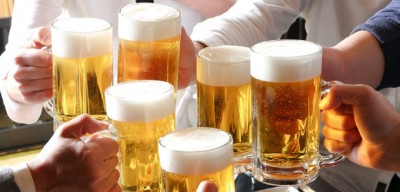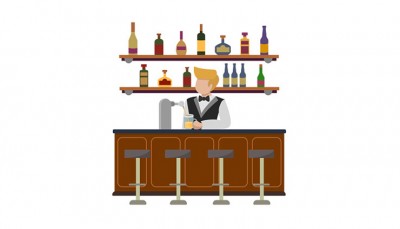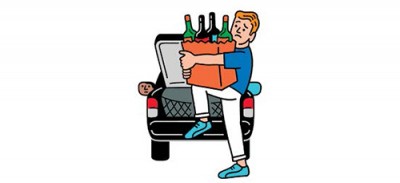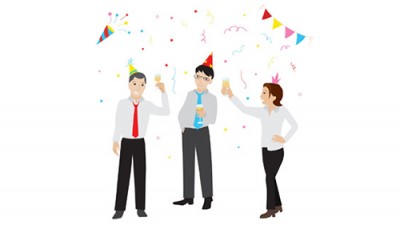




I. The Enactment
Studies have shown that drinking together increases the likelihood of intimacy in the next few hours. This is especially true if the drinking takes place at home1. Chazal with their wisdom, prohibited2 drinking any alcoholic beverage in the home of a non-Jew, in order to prevent Jews from becoming too close to non-Jews in settings where intermarriage could occur. The decree still applies even if the beverage does not have any kashrut concerns, (such as being wine or wine-flavored, or containing other non-kosher ingredients).
The Tosafot (11th century France)3 note that the prohibition against beer is not mentioned in the mishnah or beraita (3rd century CE). However, it seems that beer made by non-Jews was prohibited in the days of the Amoraim (200 to 500 CE). The Rashba (1235 – 1310),4 on the other hand, believes that the prohibition was adopted by the masses as a measure to prevent intermarriage.
This prohibition differs from Bishul Akum and Pat Akum. The prohibition against eating food cooked by a non-Jew or bread made by a non-Jew can be allowed if a Jew participates in the cooking or baking process. However, this leniency does not apply to shechar (liquor), even if it was made by a Jew. The prohibition against consuming shechar purchased from a non-Jew is based on the location where it was purchased, not on who made it.
II. What
A. Alcoholic Beverages
The Rama5 (1530 -1572) rules, like the Mordechi (1250–1298),6 that the decree was enacted specifically for date beer. This has been the accepted practice by Ashkenazim. However, Rav Avraham Danzig (1748-1820)7, the author of Chayei Adam and Chochmat Adam, rules that even Ashkenazim should be stringent in this regard.
According to the Rambam (1138–1204)8 and the Shulchan Aruch (1488 –1575)9 it is forbidden to drink all10 types of alcohol in an establishment owned by a non-Jew11.
B. Non-Alcoholic Beverages
Chazal were not concerned with the beverage itself, but rather with the social interactions that took place around it. Many poskim12 hold that the prohibition on drinking in non-Jewish establishments extends to drinking coffee or hot chocolate in a coffee shop13. Coffee should not be used as a medium for unnecessary socializing with non-Jews, as the caffeine is a stimulant that can increase energy levels and alertness, which can make it easier to socialize. One may purchase kosher coffee from a non-Jewish establishment and drink it outside, at a significant distance from the establishment.
III. Where
It is clear from the poskim that this prohibition does not depend on the person who made the alcohol, whether they were a Jew or a non-Jew, but on the possession and ownership of the alcohol.14 This prohibition only applies when drinking alcoholic beverages in the area where it was purchased from a non-Jew, or in his house. Therefore, although it may be permitted to enter a bar to purchase a beer, it must be consumed outside15 of the bar16, specifically in one’s17 house18 or significant distance from the establishment19. Those who want to drink alcohol purchased from a non-Jewish establishment outside of the establishment have what to rely on20.
IV. When
a. The prohibition against drinking in a non-Jewish establishment only applies when it is done in a formal setting, such as sitting down at a table and drinking leisurely, and when it is done seldomly (less than three times)21. The decree does not apply if one is simply taking a quick drink on the go due to thirst22. It should be noted that the prohibition applies even if a Jew is drinking alone without any social interaction with others.
b. According to the Rambam (1138–1204)23, if the majority of the attendees at a party are non-Jews, it is prohibited to drink alcohol, even if the party takes place in a house of a Jew. This is codified by all the major poskim, including the Tur, Bet Yosef, Bach, and others. However, if there is a majority of Jews at the gathering, then such a situation is not included in the decree of our Sages.
It is important to note that it is forbidden for a Jew to be present in a bar or establishment that contains inappropriate activities for a Jew, such as immodest dress, vulgar music, dancing, and the like. This prohibition applies even if the person does not order a drink at all. It makes no difference whether the bar is owned by a Jew or a Gentile.
V. Conclusion
Chazal prohibited drinking any alcoholic beverage or coffee in the home or store of a non-Jew, in order to prevent intermarriage. It is only forbidden
a. when it is done in a formal setting, such as sitting down at a table and drinking leisurely
b. when the beverage is being consumed in the area where it was purchased from a non-Jew, or in his house.
In situations where the issue involves maintaining peaceful relationships with non-Jews, it is advisable to consult with a competent halachic authority for guidance on the best course of action.
By Rabbi Nissan Shalomayev
Rav, Bukharian Jewish Cong. of Hillcrest, Kehilat Ohr V’Achdut
Drinking In A Bar
Typography
- Smaller Small Medium Big Bigger
- Default Helvetica Segoe Georgia Times
- Reading Mode




